The European Bank for Reconstruction and Development (EBRD) will expand its countries of operation to include all of sub-Saharan Africa and Iraq, the bank’s president, Odile Renaud-Basso, announced at the conclusion of the annual meeting in Samarkand, Uzbekistan, on May 18.
The first investments are due to begin in six counties in sub-Saharan Africa in 2025 after the bank’s articles have been updated to include the change.
“This has been a historic meeting for the EBRD,” Renaud-Basso said during a press conference in the legendary Silk Road city that has been hosting the event. “The board of governors have come to three key decisions: to continue to make Ukraine a top priority of the bank; expand our operations in sub-Saharan Africa and Iraq; and review the bank’s resources and capital adequacy.”
The EBRD was set up to fund and aid the reconstruction of post-Soviet Emerging Europe after the collapse of the Soviet Union in 1991. It later expanded its operations in 2011 to include the countries of North Africa that “belong to the European club”. However, with the expansion into all of Africa and part of the Middle East, the bank has now moved decisively beyond its original mandate.
Renaud-Basso explained the move was driven by the fact that the bank has several unique skills to offer African nations. One of its skills is advice on policy reform that can lead to faster economic development, and it has been especially successful in promoting green energy investments, which account for up to half its portfolio of investments last year. And while the bank regularly makes very large investments, it also can undertake small investments and targets small and medium-sized enterprise (SME) development as one of its core activities.
The decision to take on Africa has been under discussion at the bank for four years. The board of governors voted unanimously for the change in direction, except for Russia and Belarus, which remain members of the board.
Africa already has several development banks but Renaud-Basso says that the EBRD has several very specific skills that will enhance the development of the region in co-operation with the other development financial institutions (DFIs).
Ukraine top priority
The board also agreed to keep Ukraine as a top priority for the bank’s work. The EBRD already restarted its operations in Ukraine after the war started last February and has been providing emergence funding and aid to crucial infrastructure and municipalities.
“We support key infrastructure, especially Ukrenergo [the power utility] as the network has been subject to constant bombing,” Renaud-Basso told bne IntelliNews. “We have been financing rapid repairs to avoid blackouts as well as funding to buy gas.”
Last year the EBRD provided €150mn of emergency financing to Ukraine Railways, €520mn to Ukrenergo and €500mn to Naftogaz to buy gas in order to keep lights and heating on and the trains running.
The EBRD has also invested €40mn in the Horizon Growth Fund IV, a private investment fund that has raised $250mn to invest in Ukraine’s reconstruction.
The EBRD has also been actively arranging funding through risk sharing on loans to Ukraine or providing unsecured lending from its own resources. Renaud-Basso added that the bank has also provided aid to municipalities to keep water, heat and other basic services working while the war rages.
The bank intends to focus on its core skill set and its core mandate in Africa of infrastructure, financing for energy companies and trade promotion.
Heading off a potential criticism that the bank is taking on too much with war-torn Ukraine and all of Africa, Renaud-Basso said that the investments into Africa will begin slowly.
“The African investments will be limited to begin with, in an incremental manner,” Renaud-Basso said. “But this will shape the future of the bank, and not just for the next few years.”
More capital
The ERBD has been investing heavily in Ukraine, distributing a record €1.7bn in 2022 and another €200mn via partners banks, and it plans to invest €3bn in all over 2022-23. In order to fund this spending the bank intends to ask its shareholders for more capital.
The EBRD said that when peace comes the reconstructions costs will be "daunting” with the latest estimates running to as much as $411bn – about four times higher than the entire value of the pre-war economy.
“The governors decided that paid in capital is the best way to provide support and so new fees will be submitted to the governors by the end of the year,” Renaud-Basso said. “Increasing the capital will allow us to continue to invest [into Ukraine] and increase it even further to fund the reconstruction.”
The EBRD is seeking a capital increase of between €3bn and €5bn additional capital from its shareholders to fund the future operations. If approved this will be the third time the bank has had a capital increase. It was founded with 10bn ecu, that was doubled to 20bn ecu in 1996 and then further increased to 30bn ecu in 2010 in the wake of the global financial crisis.
Renaud-Basso said that the governors are committed to the new direction the bank is taking, and there is a “sense of unity” amongst them.
This is the second time the bank has expanded its countries of operation. In 2011, on the back of the Arab Spring, the bank added North Africa to its brief.
This story has been updated with more details of Ukraine and funding plans.
News
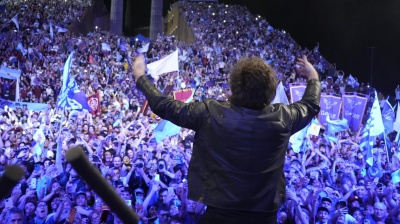
Milei celebrates resounding victory in Argentina's midterm elections
Argentine President Javier Milei scored a major win for his La Libertad Avanza (LLA) party in Argentina's October 26 midterm legislative elections, as the party obtained approximately 40.84% of the nationwide vote with 99.14% of the votes counted.
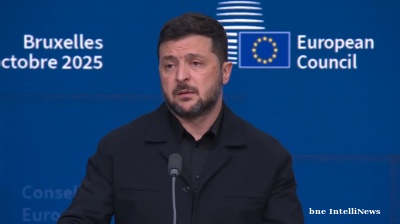
Zelenskiy accuses China of aiding Russia’s war effort through industrial and military support
Ukrainian President Volodymyr Zelenskiy accused China of materially supporting Russia’s military-industrial complex, providing key technologies and resources that have enabled Moscow to sustain and scale its war effort against Ukraine.
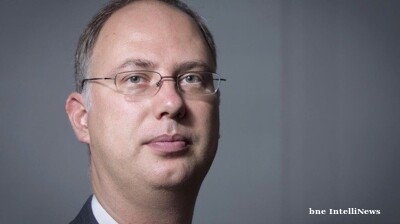
US Treasury Secretary Bessent blasts “Russian propagandist” special envoy Dmitriev in Washington PR debacle
A trip to Washington by the Kremlin’s special business envoy Kirill Dmitriev days after the US imposed new oil sanctions turned into a debacle after US Treasury Secretary Scott Bessent blasted him as a “Russian propagandist.”
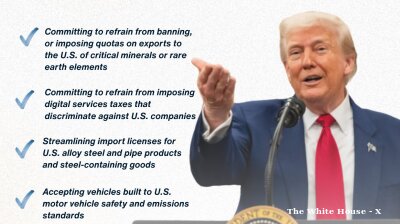
Trump pledges enduring support for Southeast Asia as new trade deals signed
During his visit to Southeast Asia, US President Donald Trump declared that Washington would remain a steadfast ally to the region, as he signed a series of trade agreements with four ASEAN member states.
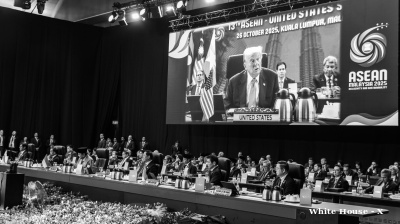



_is_seen_outside_of_OPEC's_headquarters_in_Vienna,_Austria_Cropped_0_1746690314.png)